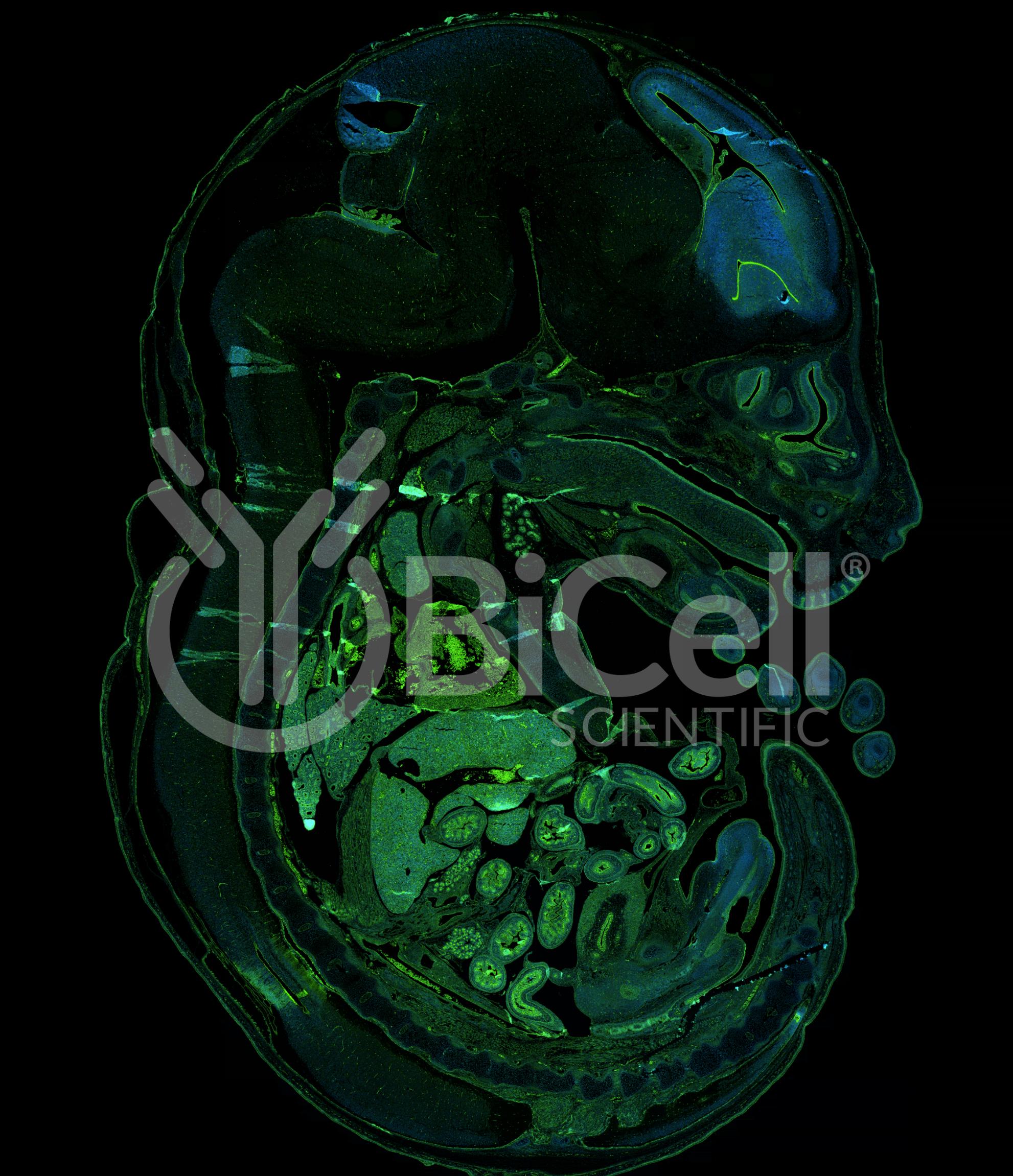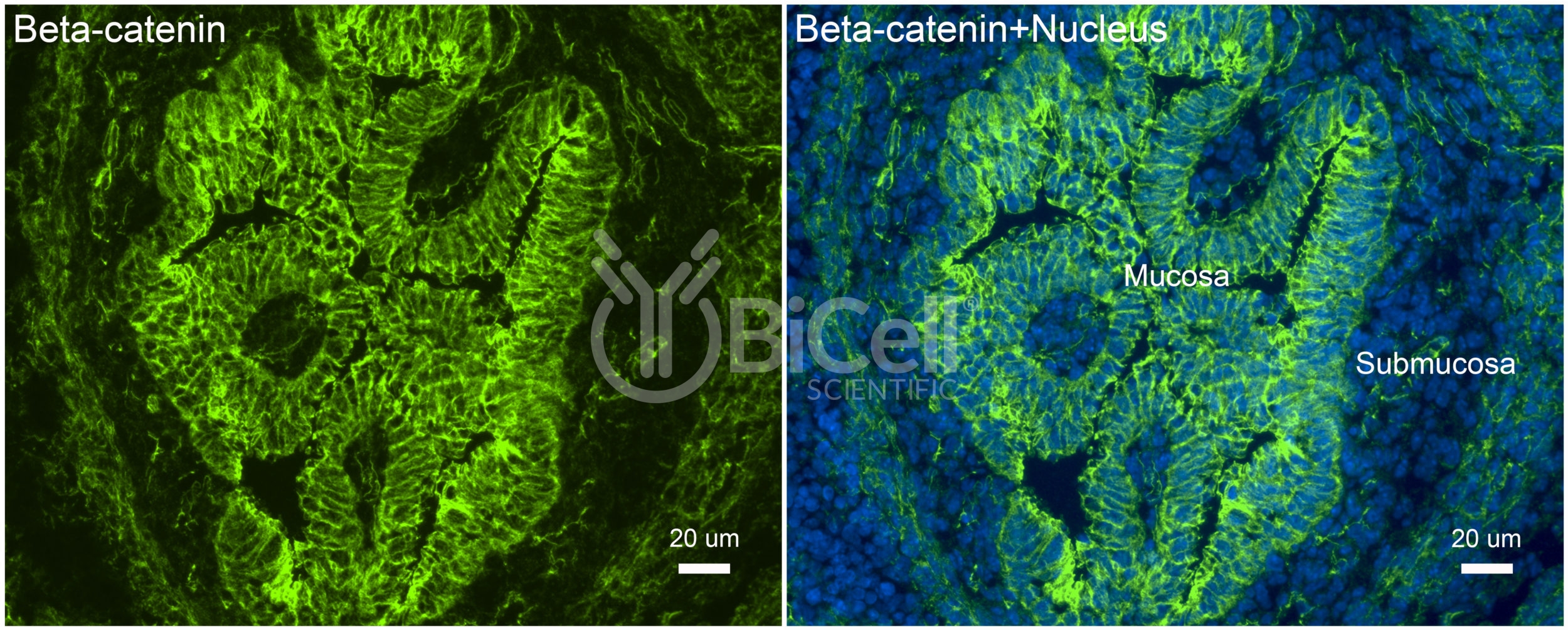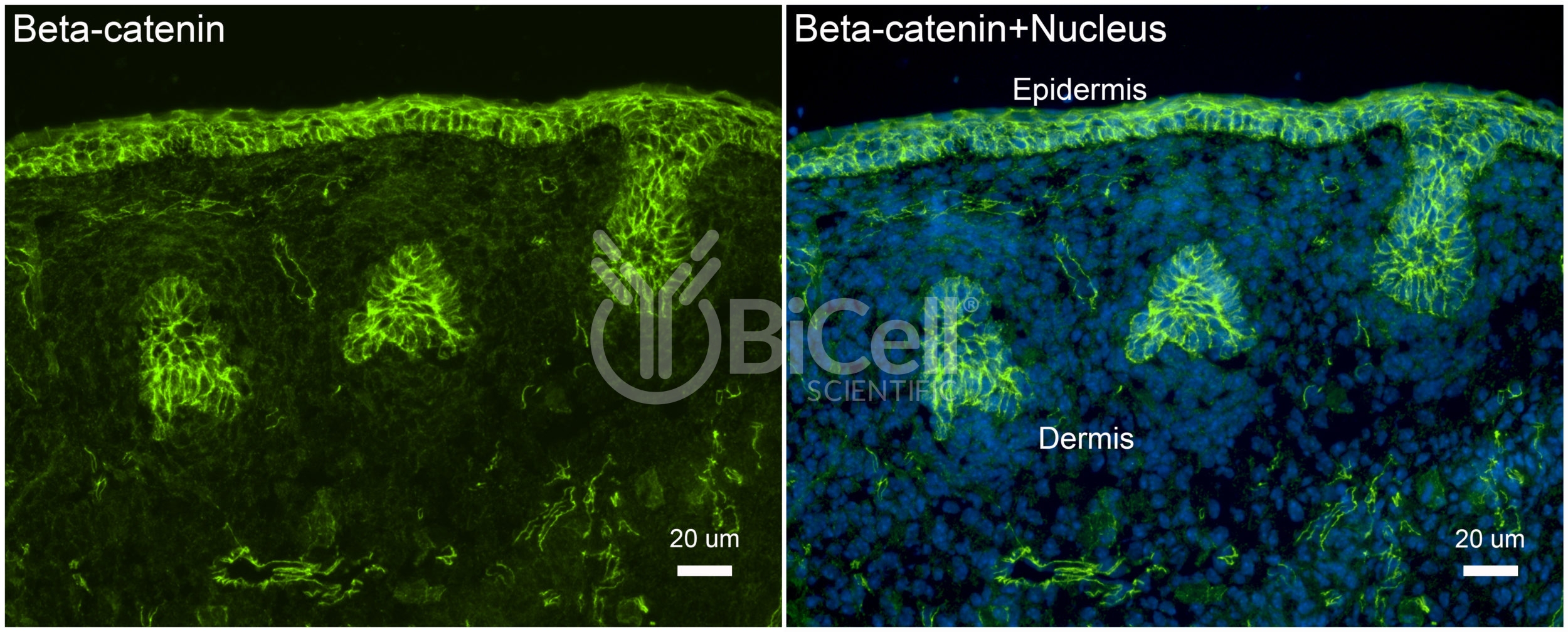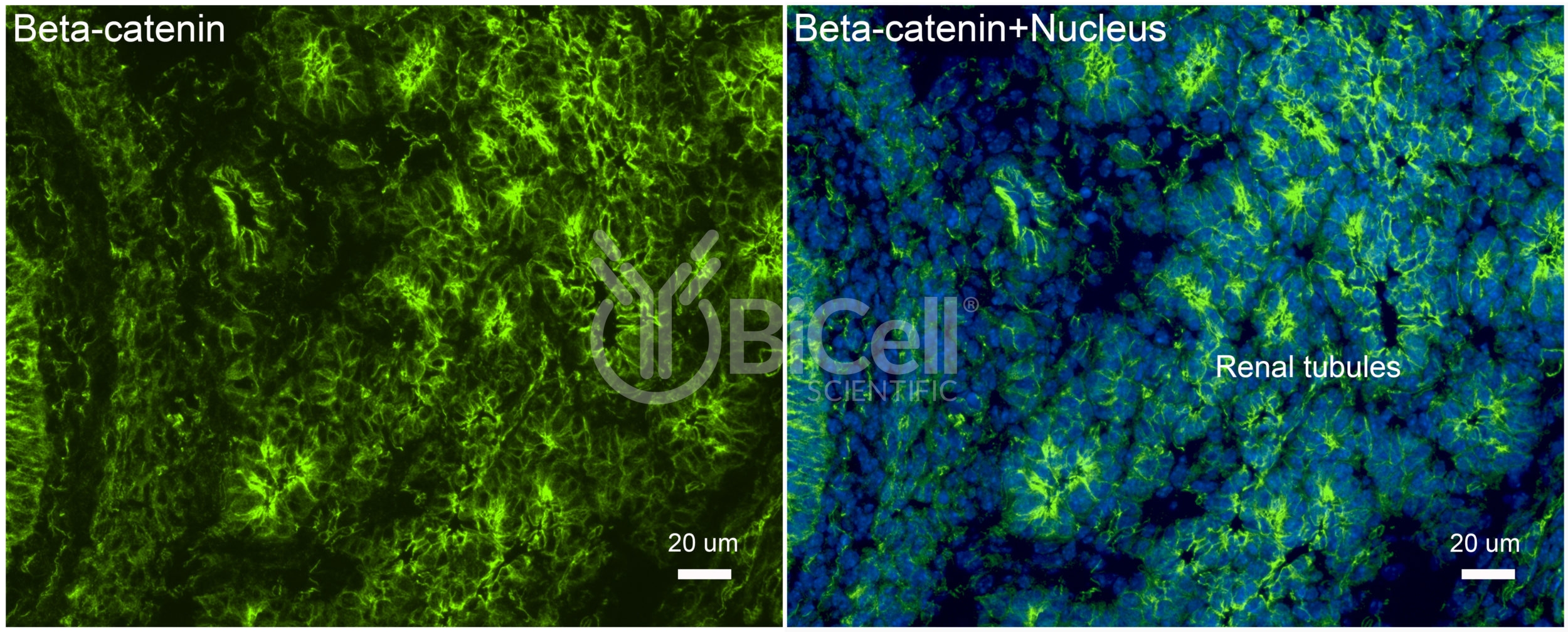Beta-Catenin (Ctnnb1) Antibody
Description
Anti-Beta-catenin (Ctnnb1) antibody is validated on mouse tissue and recommended for immunofluorescence labeling, IHC, or western blot of materials from rodent and human tissues. Beta-catenin is encoded by the CTNNB1 gene in human. Beta-catenin belongs to a protein family known as catenins. Catenins are the linker proteins that connect adherens junction to the underlying cytoskeleton. Catenins also form the plaque of adherens junction. Beta-catenin can interact with cadherins and alpha-catenin. Beta-catenin is also an important transcriptional factor that traffics into the nucleus to turn on gene expression. Beta-catenin is widely expressed in epithelial and endothelial tissues.
| Application: | Immunofluorescence, Immunohistochemistry, Western Blot |
|---|---|
| Clonality: | Polyclonal |
| Concentration: | 0.25 mg/ml |
| Conjugation: | Unconjugated |
| Host: | Rabbit |
| Immunogen: | Synthetic peptide (15-aa) derived from the C-terminal region of human beta-catenin protein |
| Isotype: | IgG |
| Purification: | Affinity Chromatography |
| Reactivity: | Human, Mouse, Rat |
| Species Homology: | Synthetic peptide sequence is identical to mouse or rat sequence |
| Storage: | -20°C |
| Storage Buffer: | PBS, pH 7.2, 0.1% Sodium Azide |




